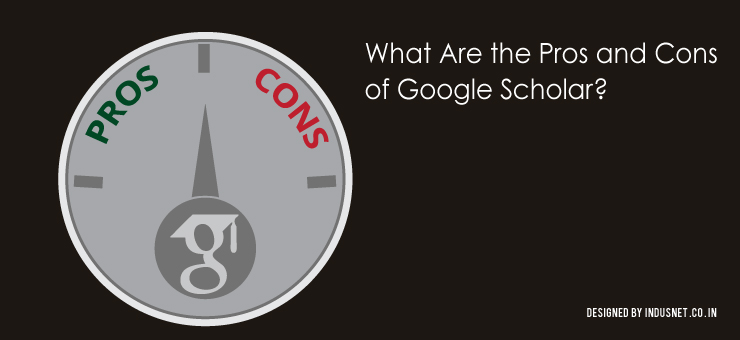
If you have run a Google Scholar search, you would know what a great tool it is to those who look for scholarly document. No matter which topic you are looking for, all the published papers and abstracts of those papers (when entire papers are not available for viewing) is brought in the search results.
What is Google Scholar and what does it do?
Google Scholar has helped people to write blogs, to conduct literature reviews and to write review articles themselves, using material available online. Google Scholar has grown to become on the largest databases of academic material, whether they are journals, papers or even books. This has made it to be one of the most important and formidable technical databases where one could look for information that is peer-reviewed.
What are its advantages and disadvantages?
While Google Scholar certainly has a number of advantages, it still lacks the kind of professionalism that PubMed and other databases have. Google Scholar is also not given the kind of attention it deserves by Google, for obvious reasons. There isn’t much money to make from Google Scholar. From regular Google search results, it makes a lot of money.
In order to gauge the advantages and disadvantages, Péter Jacsó at the University of Hawaii, Manoa, Hawaii, USA conducted a general review of the recent history of the Google Scholar search engine. He started to dig data right from its inception in November 2004. He feels that there are massive omissions in the content that is displayed in the search results and that future changes are required to make Google Scholar more amenable to being a research database.
The study, methodology and results
Titled “Google Scholar: the pros and the cons”, Péter Jacsó’s paper clearly presents the status of Google Scholar. He goes on to say that Google Scholar has received a lot of attention and praise but Google has not lived up to the expectations. Though it is free to search and look for information on Google Search, it does not bring all the results that a scholar might be looking for.
Moreover, in spite of trying to push scholarly articles to Google Scholar, Google has not made the efforts to index them; and we are talking about papers published by eminent journals from eminent universities. This paucity needs to be addressed by Google in order to fill the gaps.
Peter feels that highly relevant information has been left out and that has caused a lot of disappointment among those who believed this would be a great tool. Still, it is one of the better tools to discover papers and articles that you probably couldn’t find anywhere else. Google Scholar is, indeed, one of the best methods to conduct a quick literature review.
Google needs to pay more attention to Google Scholar
Whether you are looking at writing an academic blog or you are fascinated by scientific literature, having access to peer-reviewed scientific papers is very important. In order to ensure that you get what you need, you need to use Google Scholar and other databases. However, according to this researcher, Google Scholar is far from perfect.
It is unfortunate that Google has not paid attention to this much valuable resource, which could be beneficial to businesses as well. Whether you are making a presentation or writing a report, having access to published papers is very important. What Google Scholar does is, it gives you a number of research articles and also lets you subscribe to them so that you continue to receive updates on your favorite topic.
All this published data can be converted into infographics, blogs and even presentations. We sincerely hope that Google pays more attention to Google Scholar and fix all the kinks within the search engine. This is a formidable tool that will help everyone, right from school students to business owners. Certainly, a little more interest in Google Scholar from the corporate world will put a little pressure on Google to make the necessary changes to the algorithm.
You can read Péter Jacsó’s paper here.
Reference